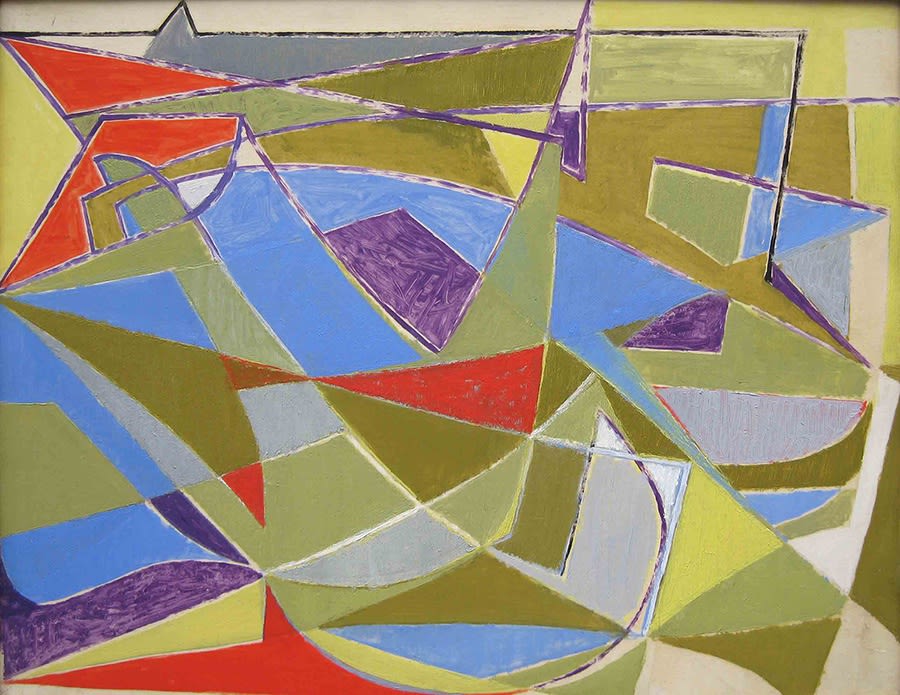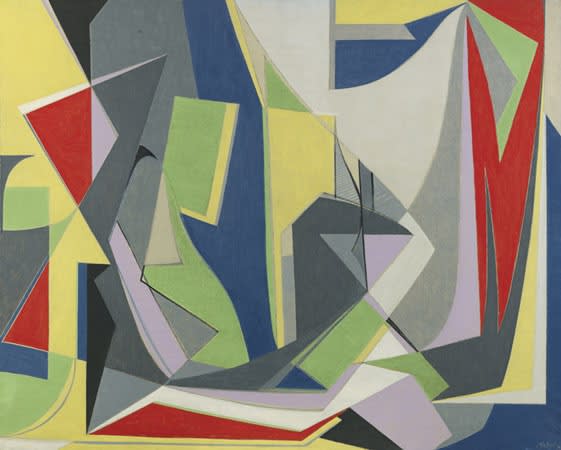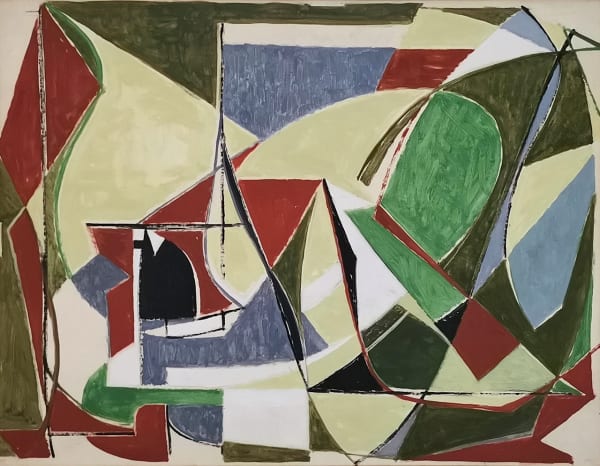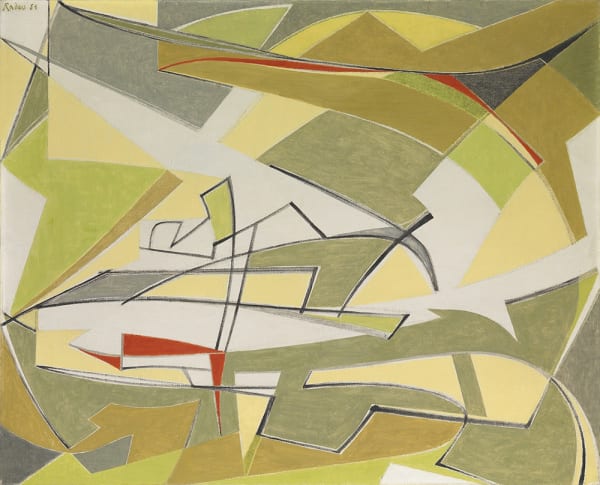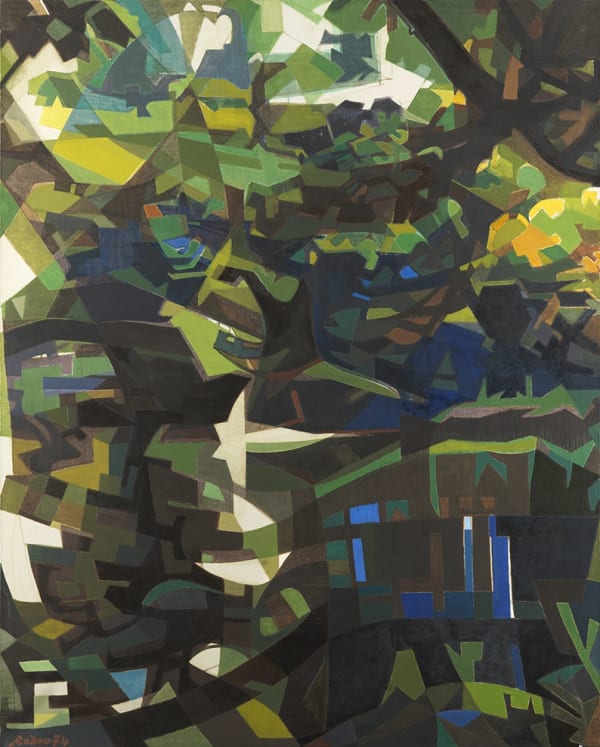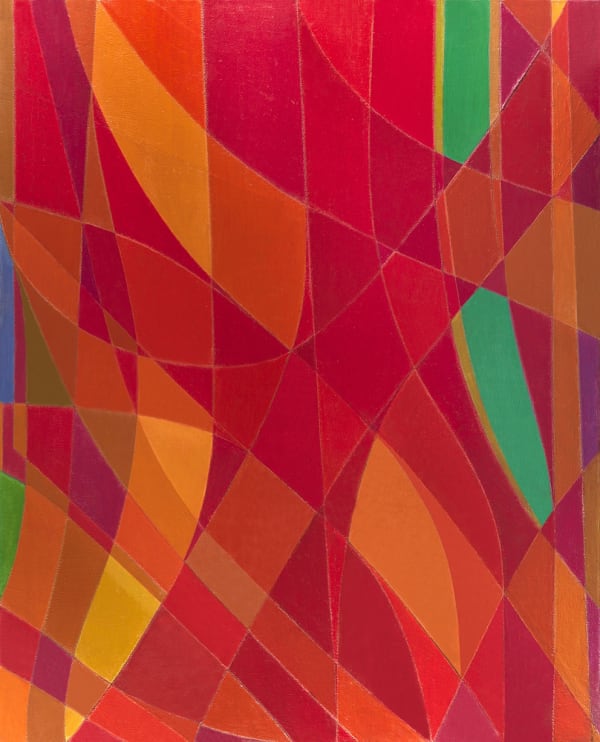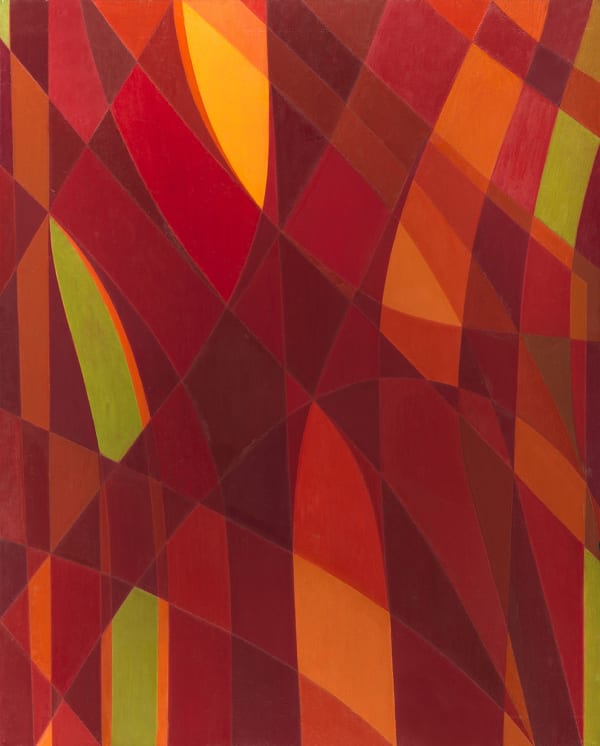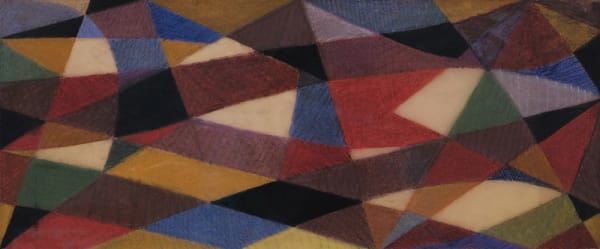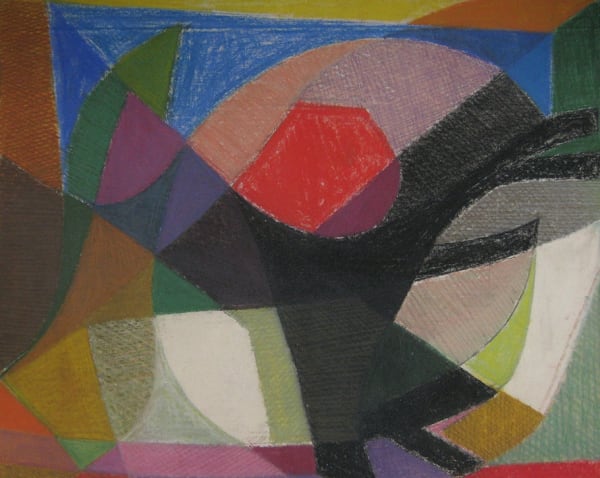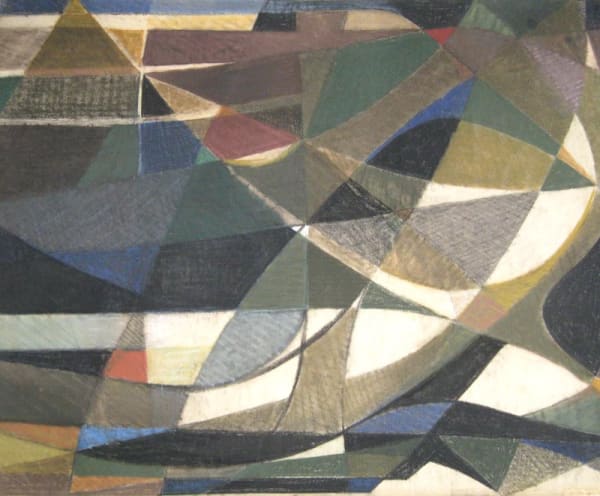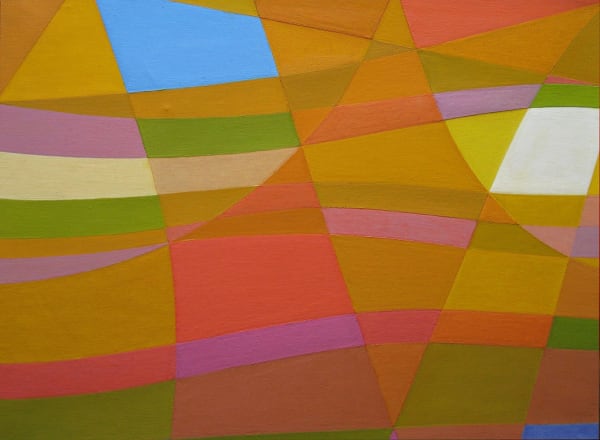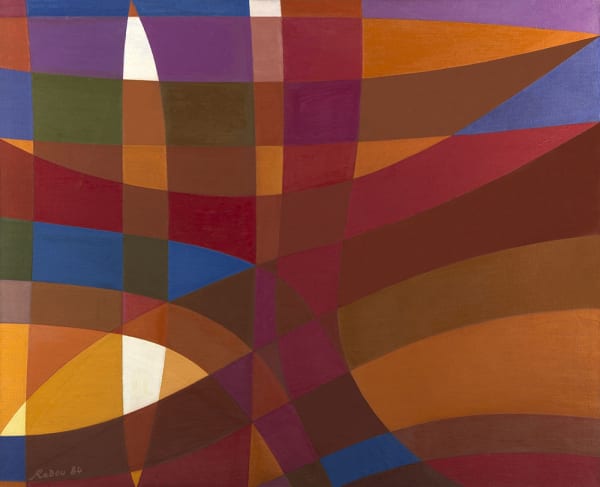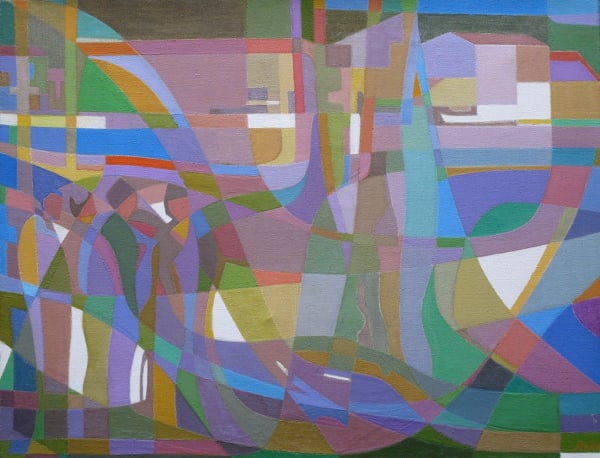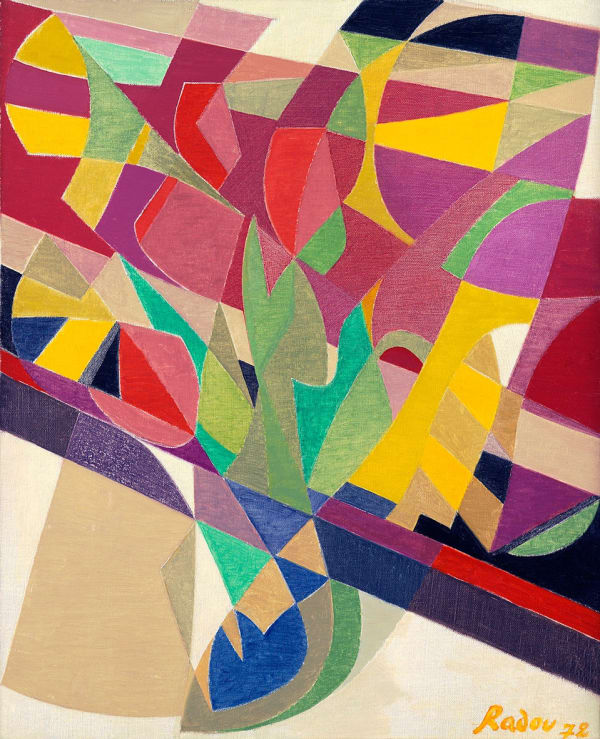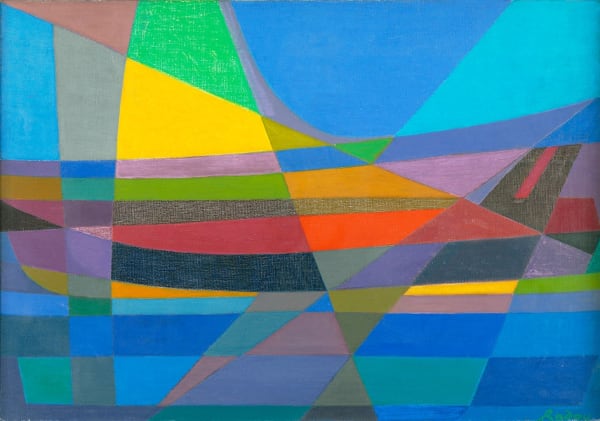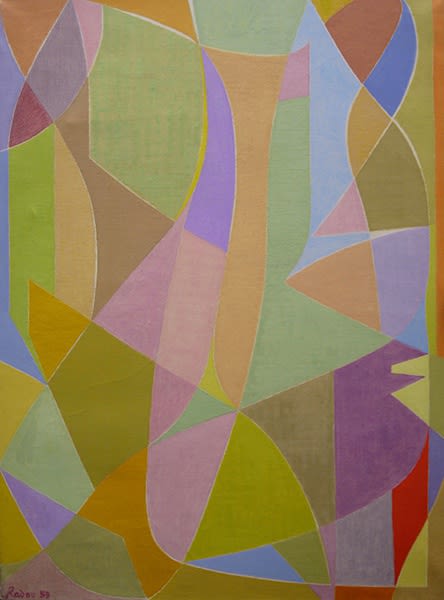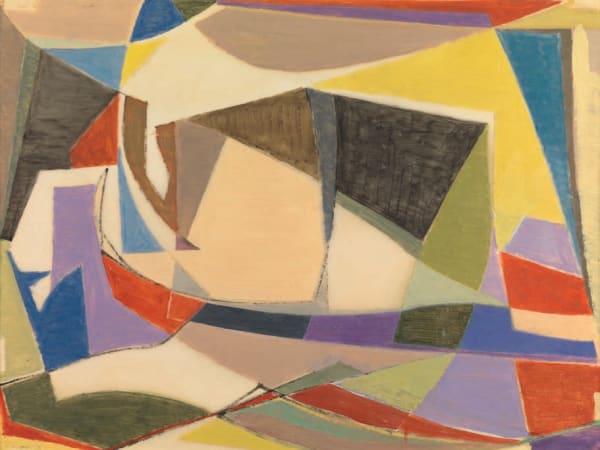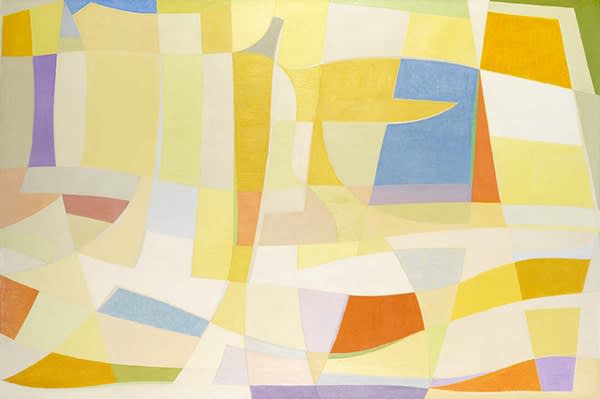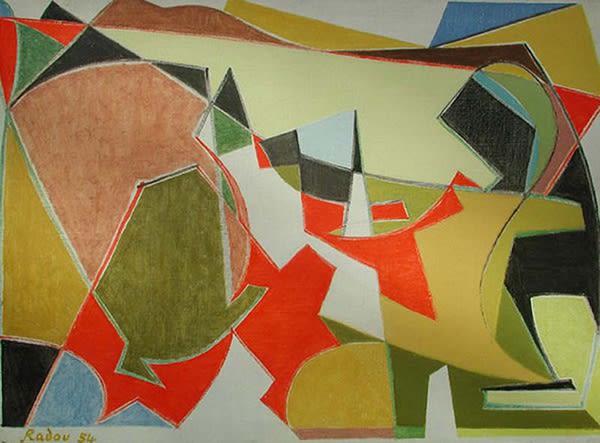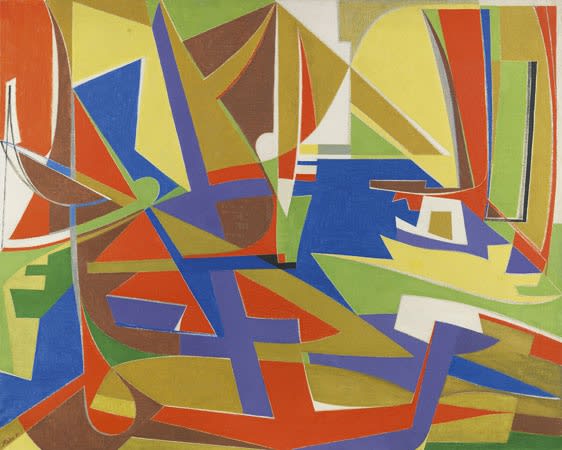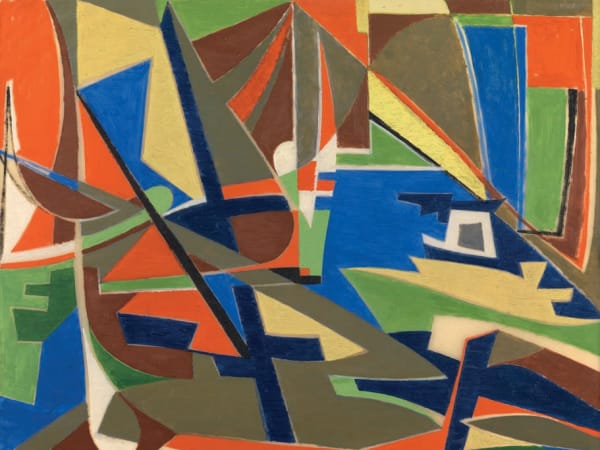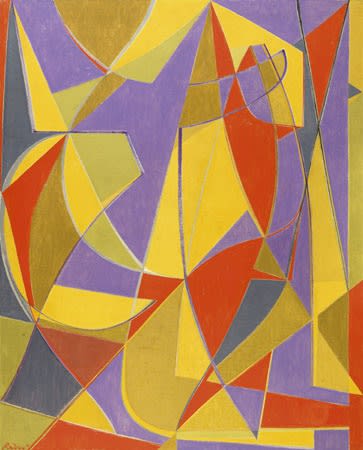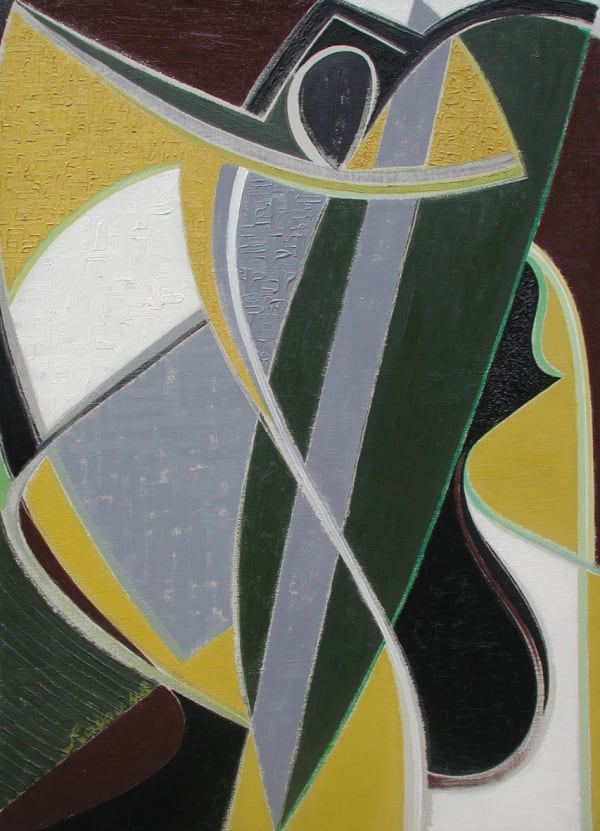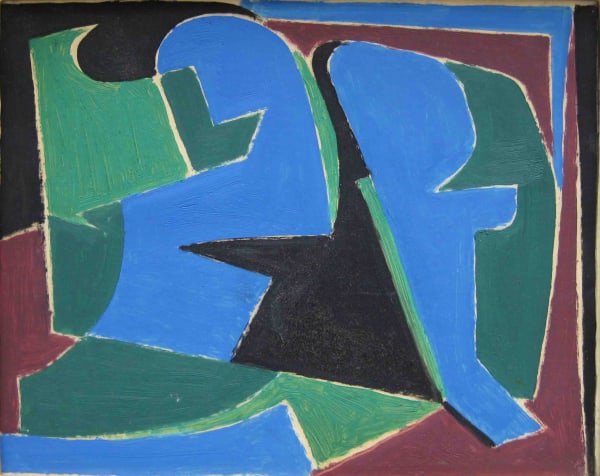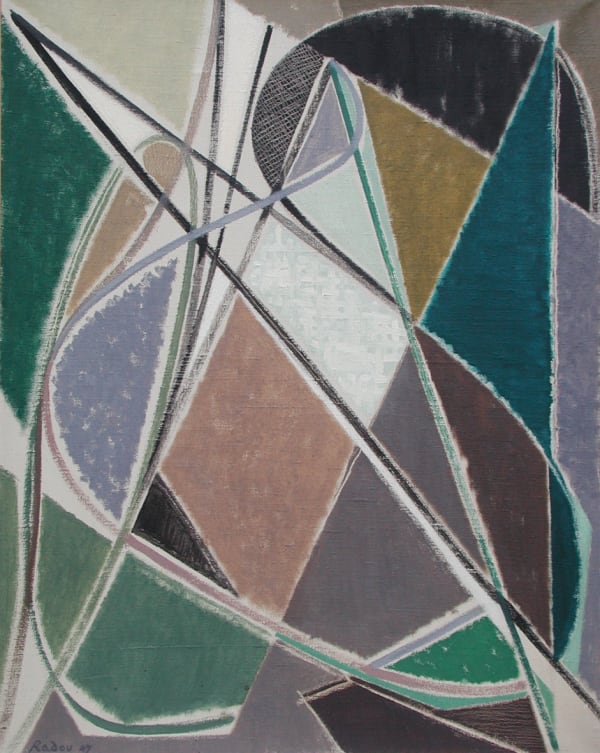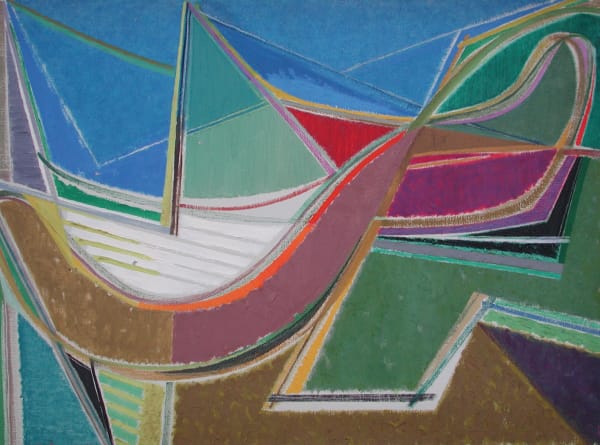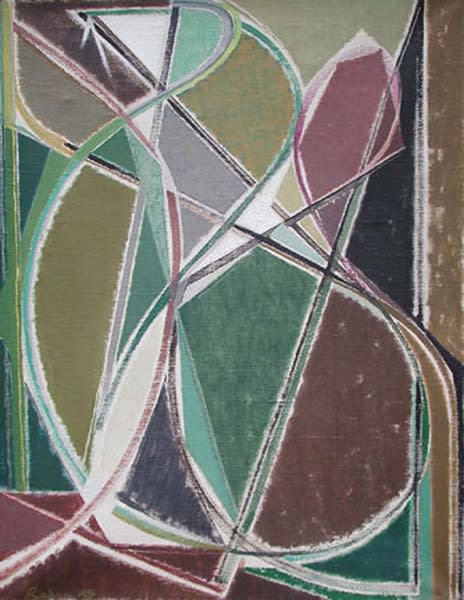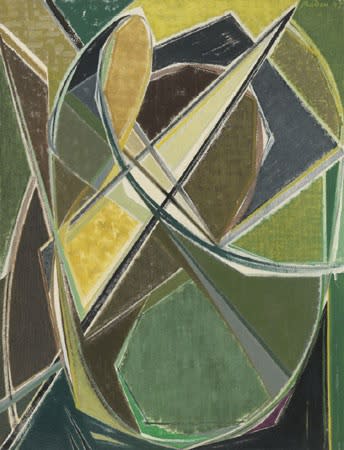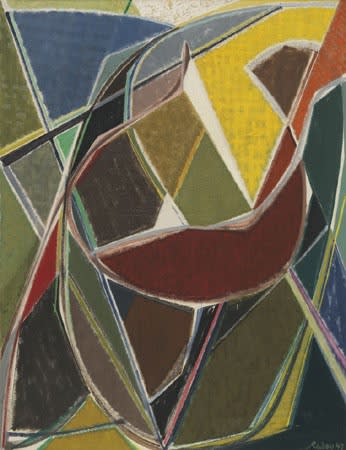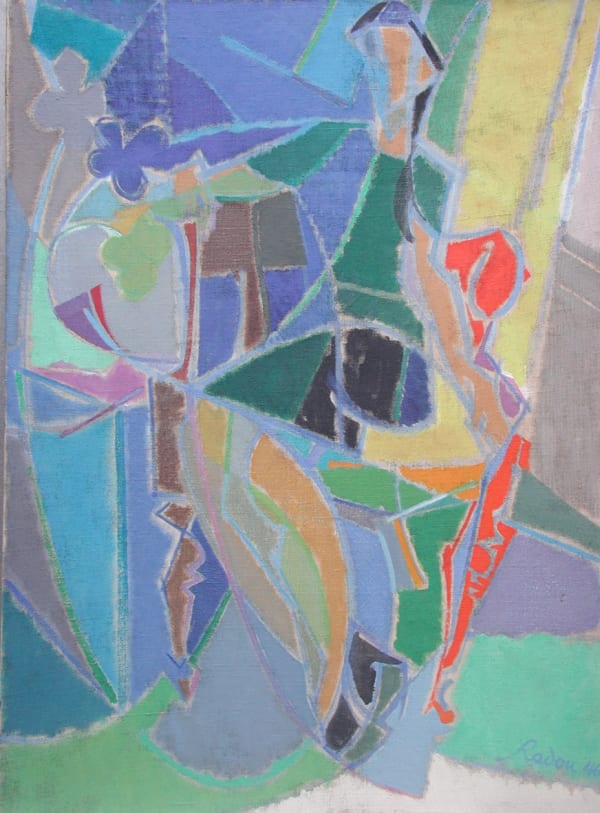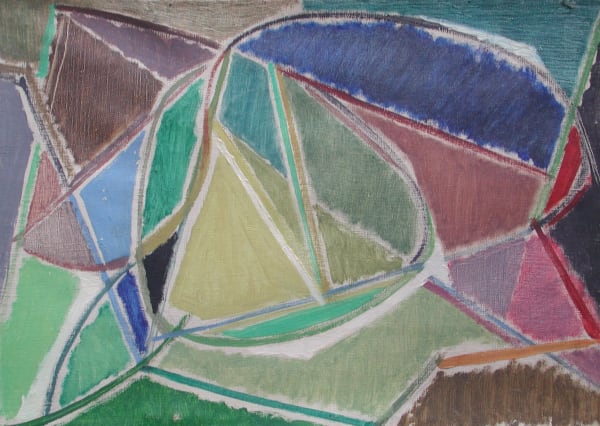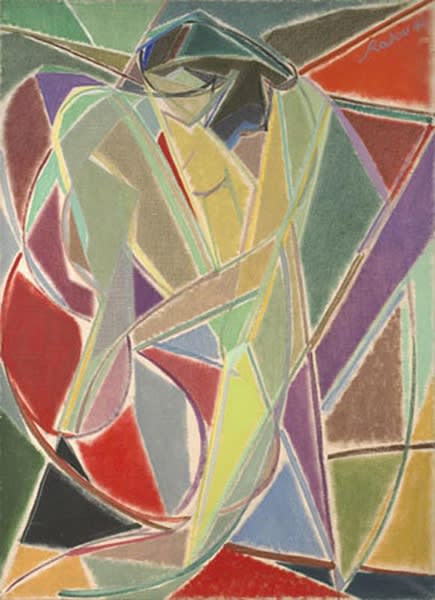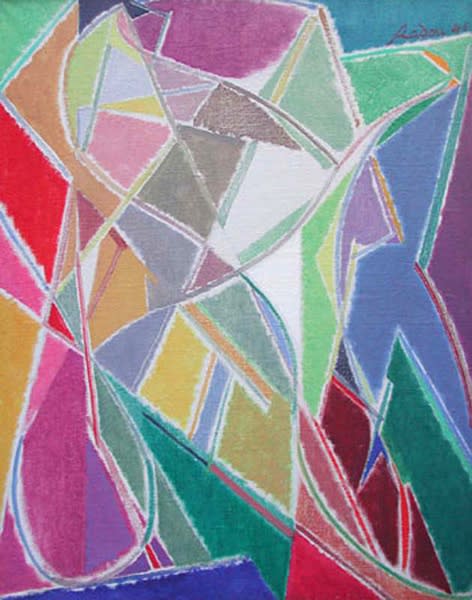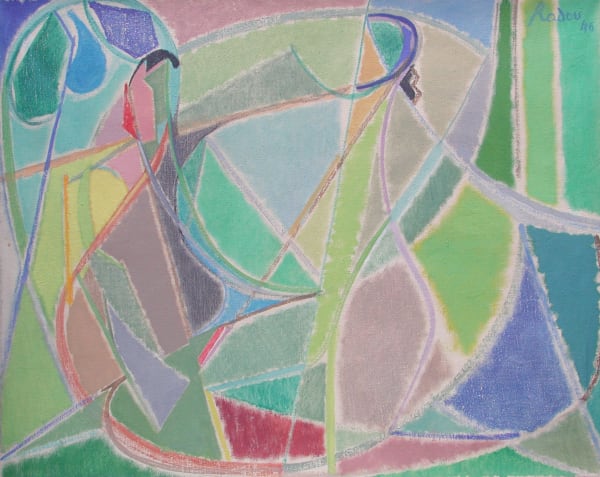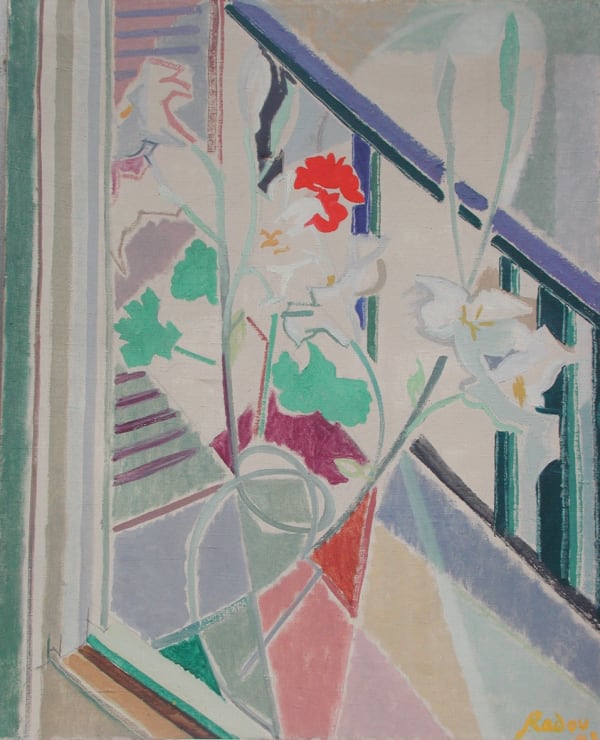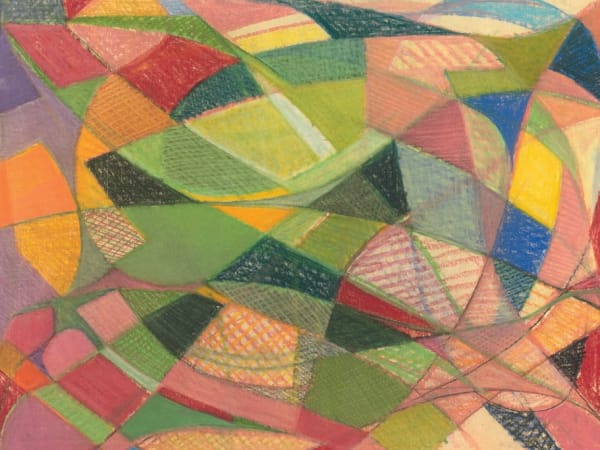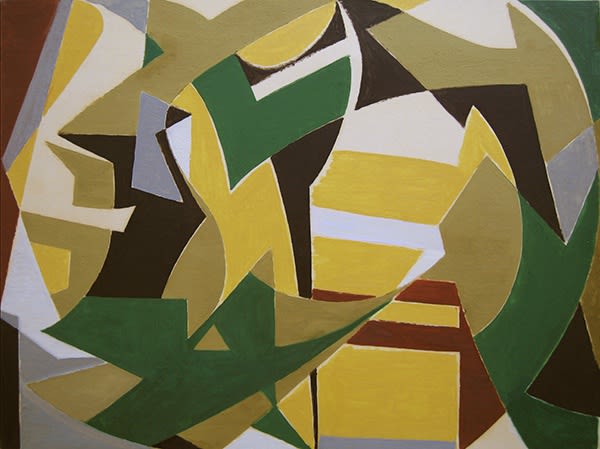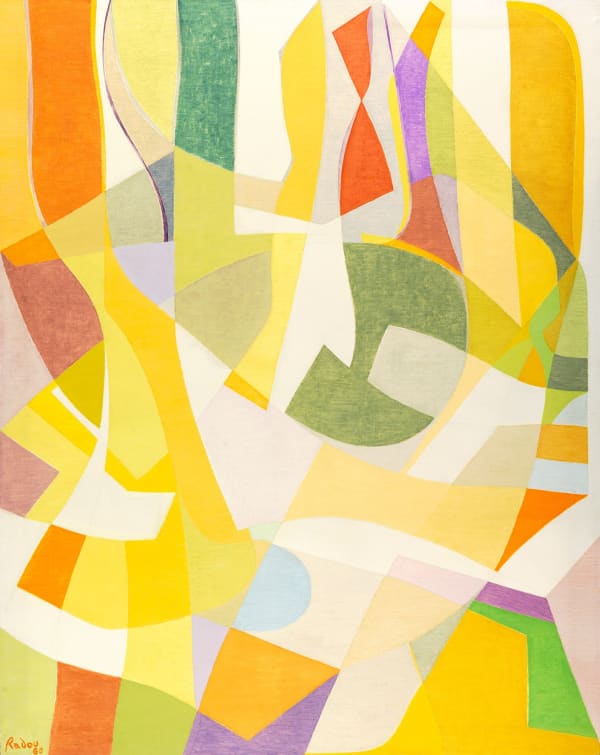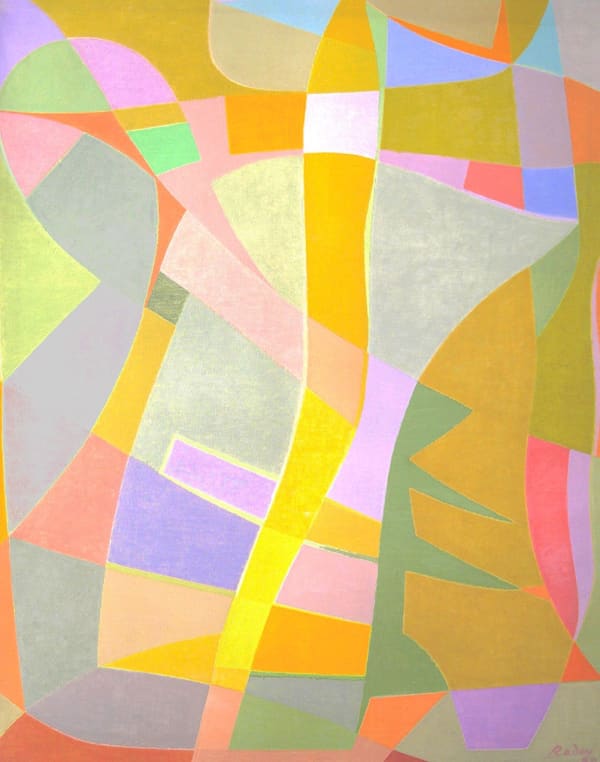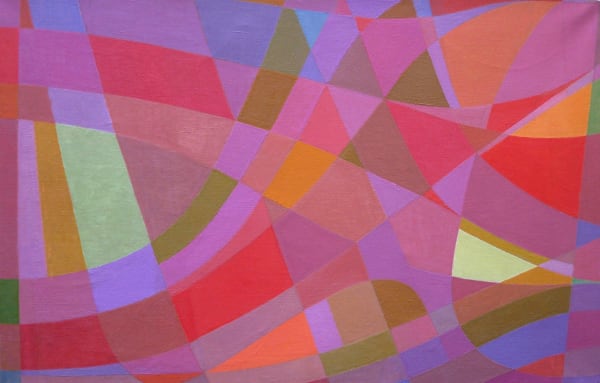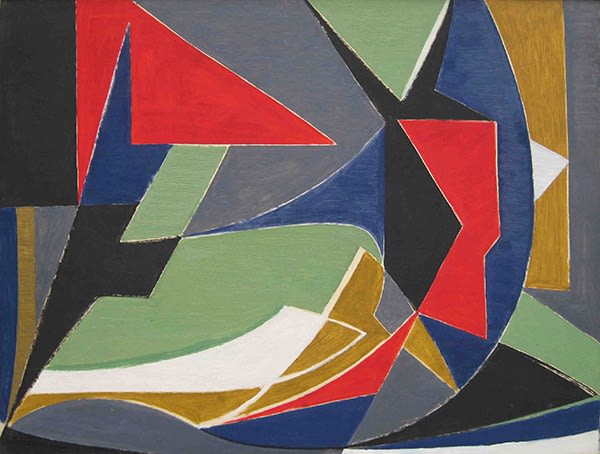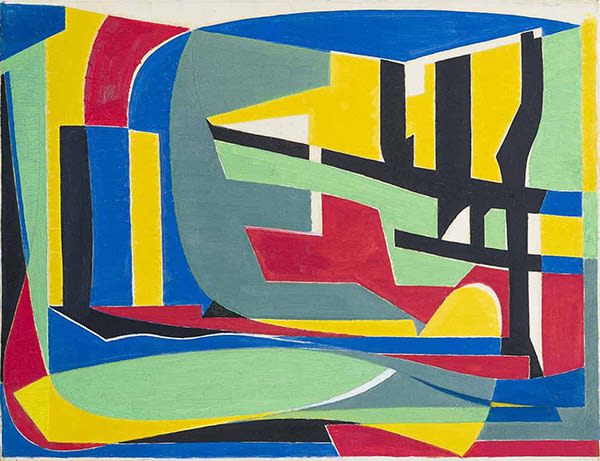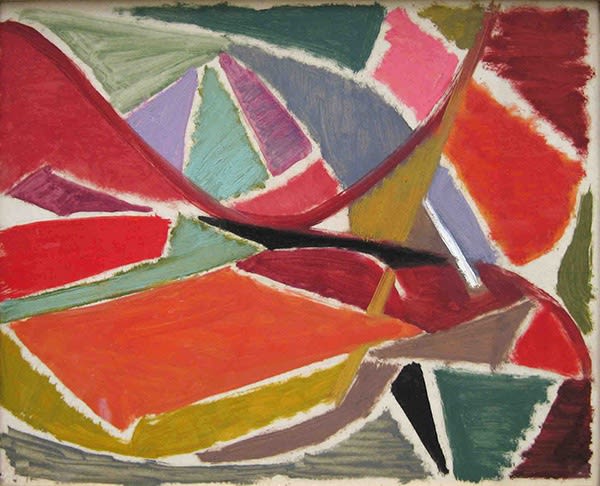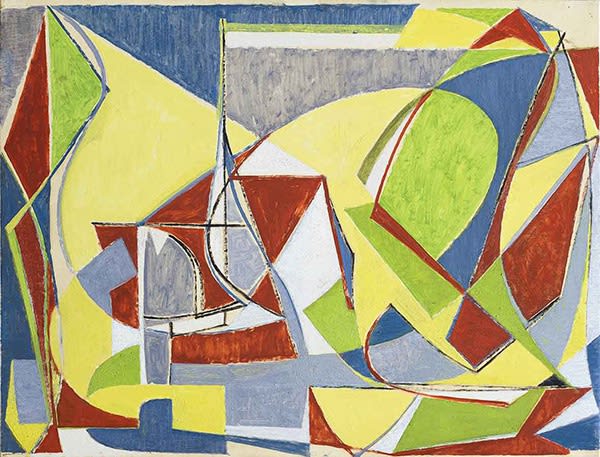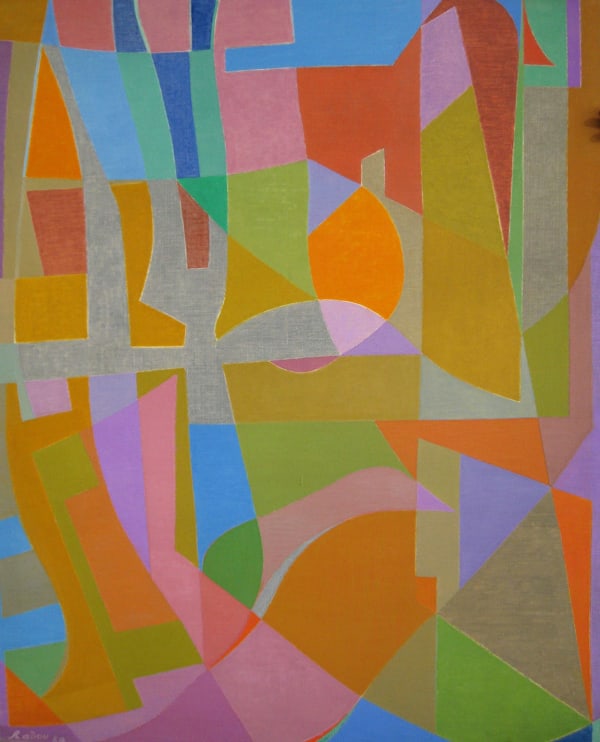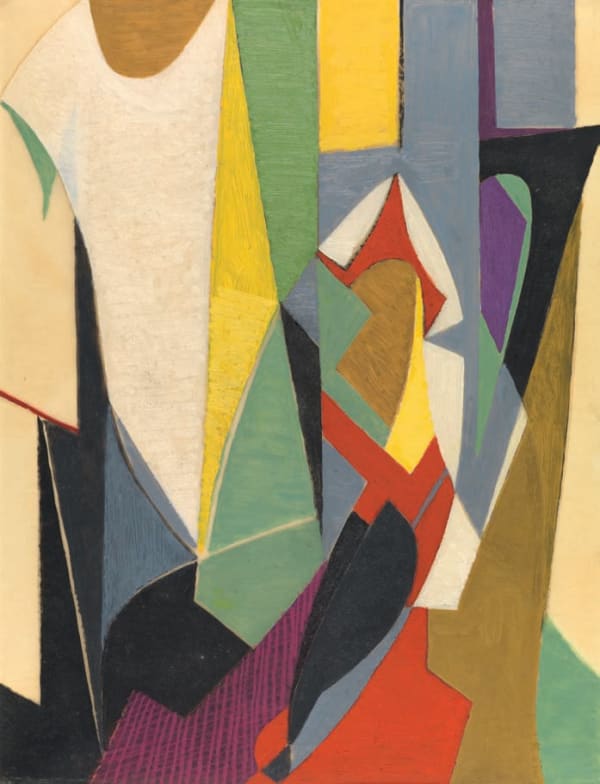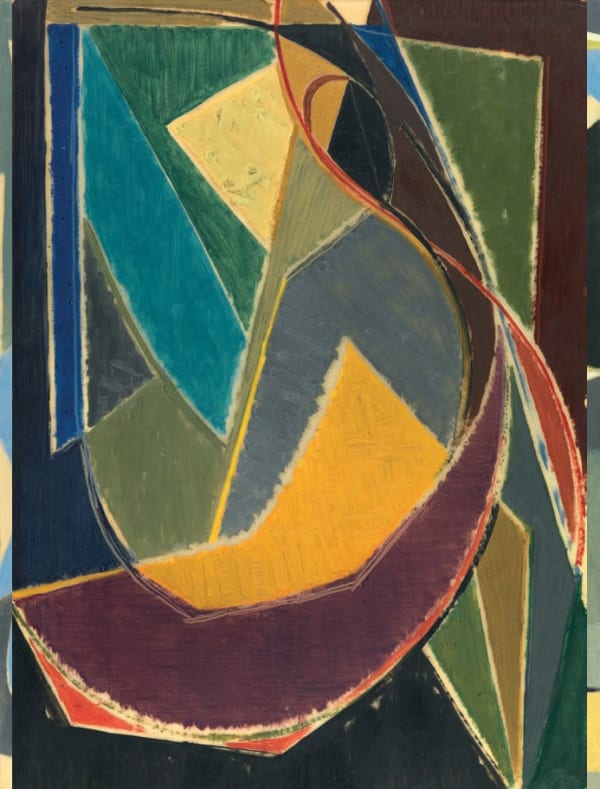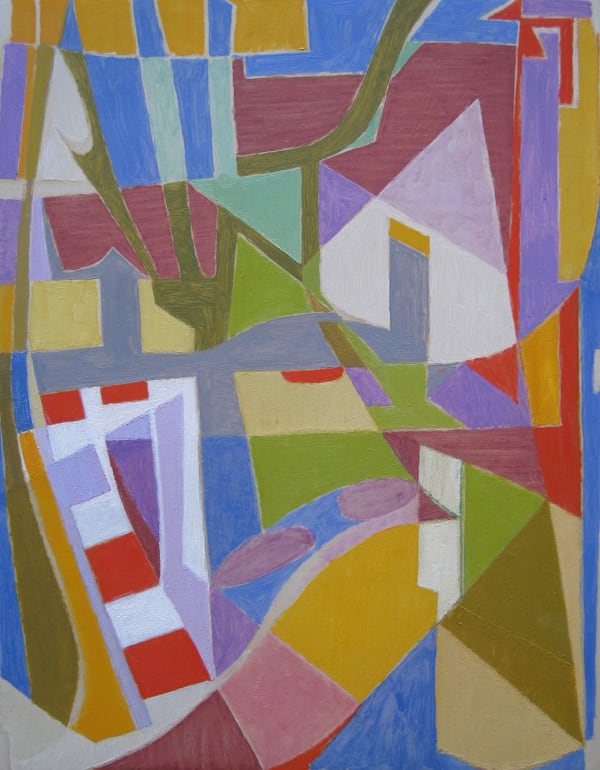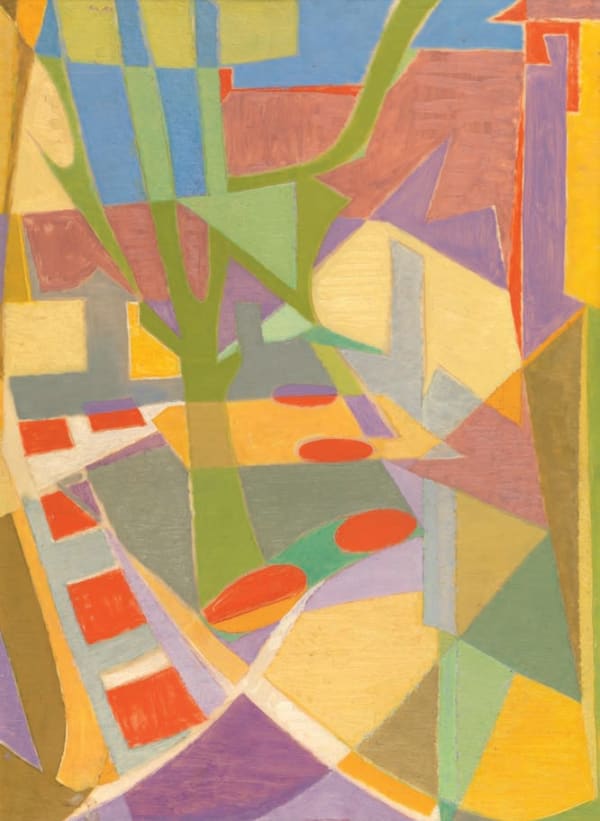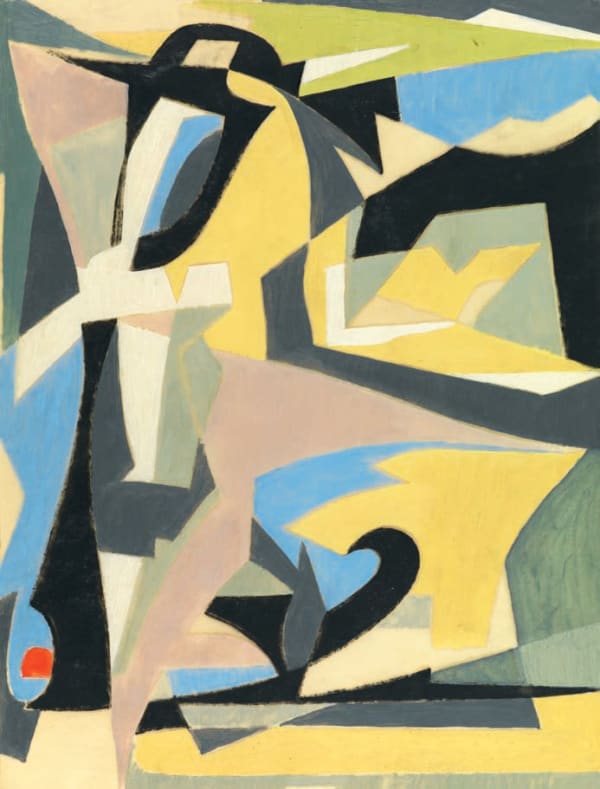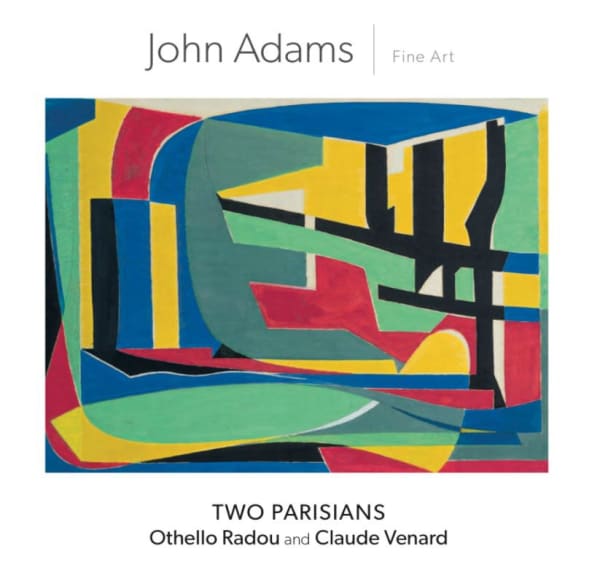 Joie d’Été, 1950Othello RadouClick on the image to view more details
Joie d’Été, 1950Othello RadouClick on the image to view more details Le Champs de Bourgogne IIOthello RadouClick on the image to view more details
Le Champs de Bourgogne IIOthello RadouClick on the image to view more details Le Port au PrintempsOthello RadouClick on the image to view more details
Le Port au PrintempsOthello RadouClick on the image to view more details Harmonie en Vert et Gris, 1951Othello RadouClick on the image to view more details
Harmonie en Vert et Gris, 1951Othello RadouClick on the image to view more details Paysage Jaune, 1961Othello RadouClick on the image to view more details
Paysage Jaune, 1961Othello RadouClick on the image to view more details Entre Rivière et Forêt, 1974Othello RadouClick on the image to view more details
Entre Rivière et Forêt, 1974Othello RadouClick on the image to view more details La Fôret Tropicale, 1979Othello RadouClick on the image to view more details
La Fôret Tropicale, 1979Othello RadouClick on the image to view more details Été en Rouge II, 1964Othello RadouClick on the image to view more details
Été en Rouge II, 1964Othello RadouClick on the image to view more details Composition en Rouge et Vert, 1949Othello RadouClick on the image to view more details
Composition en Rouge et Vert, 1949Othello RadouClick on the image to view more details Les Couleurs d’Été, 1986-1987Othello RadouClick on the image to view more details
Les Couleurs d’Été, 1986-1987Othello RadouClick on the image to view more details Été en Rouge I, 1964 circaOthello RadouClick on the image to view more details
Été en Rouge I, 1964 circaOthello RadouClick on the image to view more details La Côte Rose, 1981-82Othello RadouClick on the image to view more details
La Côte Rose, 1981-82Othello RadouClick on the image to view more details Le Port Méditerranéen II, 1974Othello RadouClick on the image to view more details
Le Port Méditerranéen II, 1974Othello RadouClick on the image to view more details Abstract Composition IOthello RadouClick on the image to view more details
Abstract Composition IOthello RadouClick on the image to view more details Abstract Composition IIOthello RadouClick on the image to view more details
Abstract Composition IIOthello RadouClick on the image to view more details Au PortOthello RadouClick on the image to view more details
Au PortOthello RadouClick on the image to view more details La Brise d’ÉtéOthello RadouClick on the image to view more details
La Brise d’ÉtéOthello RadouClick on the image to view more details La VilleOthello RadouClick on the image to view more details
La VilleOthello RadouClick on the image to view more details Paysage de PrintempsOthello RadouClick on the image to view more details
Paysage de PrintempsOthello RadouClick on the image to view more details Paysage d’AutomneOthello RadouClick on the image to view more details
Paysage d’AutomneOthello RadouClick on the image to view more details Paysage d’ÉtéOthello RadouClick on the image to view more details
Paysage d’ÉtéOthello RadouClick on the image to view more details Composition en bleuOthello RadouClick on the image to view more details
Composition en bleuOthello RadouClick on the image to view more details Rythme d’ÉtéOthello RadouClick on the image to view more details
Rythme d’ÉtéOthello RadouClick on the image to view more details Les Collines de ProvenceOthello RadouClick on the image to view more details
Les Collines de ProvenceOthello RadouClick on the image to view more details Soleil CouchantOthello RadouClick on the image to view more details
Soleil CouchantOthello RadouClick on the image to view more details Felucas sur le NilOthello RadouClick on the image to view more details
Felucas sur le NilOthello RadouClick on the image to view more details
Born in Monte Carlo in 1910, Othello Radou forged his artistic career in a vein of Geometric Abstraction that he made his own.
Dynamic, rhythmical, and in a palette at once audacious and restrained, Radou's paintings moved Le Monde art critic Genevieve Breerette, who hailed them as "supple, harmonious and elegant," and perceived that Radou knew how to "combine intuition and intelligence, reflection and sensibility."
The meticulous hard work and discipline that Radou applied in creating his paintings was documented towards the end of his life, illustrating his artistic philosophy and techniques in his An Essay on Painting. In Radou's writing emerge ideas that note the importance of music to his creative process.
Othello Radou believed that a painting is built in shapes and colours, the former originated by the artist, the latter comes organically out of the shapes and creates the harmony: "It's the way the musician accomplishes his themes and melodies - the shapes - which makes the difference, rather than the techniques and harmonies themselves."
A move to Paris at the age of 17 enabled Othello Radou to study under the tutelage of the artist Jean Lombard, who encouraged him to exhibit with a group of artists known as the Groupe du Vert-Bois. From 1943 onwards he regularly exhibited at the Salon d'Automne and the Salon des Indépendants in Paris.
Radou also participated in the inaugural exhibition of the Salon des Réalités Nouvelles in 1946, showing his work with other artists such as Auguste Herbin, Jean-Marie Euzet, and Henri Valensi. The art critic of Le Soir, Leon Degand, wrote of Radou in March 1947:
"With regard to painting, we hasten to draw attention to two revelations: Willy Mucha and Othello Radou. The fauvist expressionism of the first and the integral abstraction of the second, testify to serious qualities of invention. Their styles are not improvised and one discovers the complete presence of the artist. Two names that one likes the opportunity to find at private exhibitions."
Throughout the 1940s and 1950s Othello Radou pursued his journey in search of elegance and perfection and continued to work with commitment and self-analysis, "An artist has to have himself as his own critic; on his own he will get lost. If he is not followed around by his own shadow, by his own discipline, then he will not get far."
This intellectual and artistic quest led to a subtle change in the style of Radou's paintings from the 1960s onwards, to an increasingly free interpretation, the geometric hand less formal and the abstraction more concentrated.
Indeed these later works could be described as "lyrical" Geometric Abstraction, with a more extensive "colourist" palette, evoking the intense hues of the South, the place of his birth.
During the 1960s, 70s, and 80s, Othello Radou exhibited extensively, continuing to exhibit annually at the Salon des Réalités Nouvelles, Groupe du Vert Bois, and the Salon de Mai in Paris.
He had a critically acclaimed one-man show at the Galerie Camille Renault in 1971, was commissioned by the French State to execute murals at three different scholastic establishments and at the University of Grenoble, and had canvases purchased both by the Ville de Paris and the French State for the Musée d'Art Moderne. Radou also exhibited internationally in Germany, Canada, and Lebanon.
In the words of the art critic Jean Cassou on the occasion of Othello Radou's solo show in 1971:
"Radou is a demanding artist, who invents geometric forms which are imprisoned in a network of straight lines, spirals, curves and contre-curves, and which give his large paintings, at the same time, a firm structure and very dynamic rhythm and these recent canvases emphasise with more intensity the colours and are more subtle in composition."
Following the death of his beloved wife Valeria, Radou found it increasingly difficult to maintain his creativity, and ceased to paint altogether in the final few years before his death in 2006 in Paris.
 L’Après-midi, 1946Othello Radou
L’Après-midi, 1946Othello Radou La Palmeraie, 1963-1980Othello Radou
La Palmeraie, 1963-1980Othello Radou Le Desert Rouge, 1960Othello Radou
Le Desert Rouge, 1960Othello Radou Promenade d’Été, 1988-89Othello Radou
Promenade d’Été, 1988-89Othello Radou Chaleur d’Été, 1985-86-89Othello Radou
Chaleur d’Été, 1985-86-89Othello Radou Le Mistral, 1985Othello Radou
Le Mistral, 1985Othello Radou Les Nymphéas, 1984Othello Radou
Les Nymphéas, 1984Othello Radou Roches sur le Bord de Mer, 1983-84Othello Radou
Roches sur le Bord de Mer, 1983-84Othello Radou La Forêt, 1978Othello Radou
La Forêt, 1978Othello Radou Couleurs d’Afrique, 1977Othello Radou
Couleurs d’Afrique, 1977Othello Radou Le Quai, 1975Othello Radou
Le Quai, 1975Othello Radou Les Fleurs de Printemps, 1973Othello Radou
Les Fleurs de Printemps, 1973Othello Radou Marguerittes, 1972Othello Radou
Marguerittes, 1972Othello Radou Tulipes et Jonquilles I, 1972Othello Radou
Tulipes et Jonquilles I, 1972Othello Radou Tulipes et Jonquilles II, 1972Othello Radou
Tulipes et Jonquilles II, 1972Othello Radou Baie des Anges, 1971Othello Radou
Baie des Anges, 1971Othello Radou Côte d’Azur, 1970 circaOthello Radou
Côte d’Azur, 1970 circaOthello Radou Le Reve de la Mer, 1970Othello Radou
Le Reve de la Mer, 1970Othello Radou Musique de la Mer, 1970Othello Radou
Musique de la Mer, 1970Othello Radou Reflets de Bleu, 1970Othello Radou
Reflets de Bleu, 1970Othello Radou Reflets sur la Mer, 1970Othello Radou
Reflets sur la Mer, 1970Othello Radou Le Soleil du Sud, 1966 circaOthello Radou
Le Soleil du Sud, 1966 circaOthello Radou Musique des Montagnes, 1965Othello Radou
Musique des Montagnes, 1965Othello Radou Le Jardin Espagnol, 1963Othello Radou
Le Jardin Espagnol, 1963Othello Radou Le Jardin Provencal, 1963Othello Radou
Le Jardin Provencal, 1963Othello Radou Champs de Lavande, 1962Othello Radou
Champs de Lavande, 1962Othello Radou Le Dôme, 1962Othello Radou
Le Dôme, 1962Othello Radou Le Soleil de Provence, 1962Othello Radou
Le Soleil de Provence, 1962Othello Radou Les Couleurs du Maroc, 1962Othello Radou
Les Couleurs du Maroc, 1962Othello Radou Les Fleurs d’Été, 1962Othello Radou
Les Fleurs d’Été, 1962Othello Radou Marguerites, 1962Othello Radou
Marguerites, 1962Othello Radou Voiles Rouges, 1962Othello Radou
Voiles Rouges, 1962Othello Radou Rythme de Provence, 1961Othello Radou
Rythme de Provence, 1961Othello Radou Champs de Provence, 1959Othello Radou
Champs de Provence, 1959Othello Radou Le Lac, 1959Othello Radou
Le Lac, 1959Othello Radou Les Couleurs d’Automne, 1958Othello Radou
Les Couleurs d’Automne, 1958Othello Radou Les Voiliers, 1957Othello Radou
Les Voiliers, 1957Othello Radou Study for Les Voiliers, 1957Othello Radou
Study for Les Voiliers, 1957Othello Radou La Brise d’Automne, 1956Othello Radou
La Brise d’Automne, 1956Othello Radou La Moisson, 1955Othello Radou
La Moisson, 1955Othello Radou Paysage d’Été II, 1955Othello Radou
Paysage d’Été II, 1955Othello Radou Paysage d’Été, 1954Othello Radou
Paysage d’Été, 1954Othello Radou Le Port Méditerranéen, 1951Othello Radou
Le Port Méditerranéen, 1951Othello Radou Study for Harmonie en vert et gris, 1951Othello Radou
Study for Harmonie en vert et gris, 1951Othello Radou Study I for Le Port Mediterranéen, 1951Othello Radou
Study I for Le Port Mediterranéen, 1951Othello Radou Joie d’Été, 1950Othello Radou
Joie d’Été, 1950Othello Radou L’Été en Provence, 1950Othello Radou
L’Été en Provence, 1950Othello Radou Jeune Fille à la Rose Rouge Assise, 1949Othello Radou
Jeune Fille à la Rose Rouge Assise, 1949Othello Radou Rythme Africain, 1949Othello Radou
Rythme Africain, 1949Othello Radou Composition en Bleu et Vert, 1948Othello Radou
Composition en Bleu et Vert, 1948Othello Radou Festival de Jazz, 1948Othello Radou
Festival de Jazz, 1948Othello Radou La Danseuse Africaine, 1948Othello Radou
La Danseuse Africaine, 1948Othello Radou Musique Africaine, 1948Othello Radou
Musique Africaine, 1948Othello Radou Nuance de Bleu, 1948Othello Radou
Nuance de Bleu, 1948Othello Radou Nuit D’Automne, 1948Othello Radou
Nuit D’Automne, 1948Othello Radou Rythme Vert, 1948Othello Radou
Rythme Vert, 1948Othello Radou Study for La Danseuse Africaine, 1948Othello Radou
Study for La Danseuse Africaine, 1948Othello Radou Study for Les Couleurs d’Automne, 1948Othello Radou
Study for Les Couleurs d’Automne, 1948Othello Radou Study for Nuance de Bleu, 1948Othello Radou
Study for Nuance de Bleu, 1948Othello Radou Bateau à Voile, 1947Othello Radou
Bateau à Voile, 1947Othello Radou Chanson de la Terre, 1947Othello Radou
Chanson de la Terre, 1947Othello Radou Le Port, 1947Othello Radou
Le Port, 1947Othello Radou L’Aurore d’Hiver, 1947Othello Radou
L’Aurore d’Hiver, 1947Othello Radou L’Hiver en Provence, 1947Othello Radou
L’Hiver en Provence, 1947Othello Radou Musical Ensemble, 1947Othello Radou
Musical Ensemble, 1947Othello Radou Rythme de la Terre, 1947Othello Radou
Rythme de la Terre, 1947Othello Radou Rythme d’Automne, 1947Othello Radou
Rythme d’Automne, 1947Othello Radou Bateau à Voile II, 1946Othello Radou
Bateau à Voile II, 1946Othello Radou Femme en Repos, 1946Othello Radou
Femme en Repos, 1946Othello Radou Jeune Fille Assise sur un Fauteuil Rouge, 1946Othello Radou
Jeune Fille Assise sur un Fauteuil Rouge, 1946Othello Radou La Danse, 1946Othello Radou
La Danse, 1946Othello Radou La Régate, 1946Othello Radou
La Régate, 1946Othello Radou Le Yacht (Study for La Régate), 1946Othello Radou
Le Yacht (Study for La Régate), 1946Othello Radou Nude, 1946Othello Radou
Nude, 1946Othello Radou Portrait d’une Jeune Fille aux Longues Nattes, 1946Othello Radou
Portrait d’une Jeune Fille aux Longues Nattes, 1946Othello Radou Promenade au bord de la mer, 1946Othello Radou
Promenade au bord de la mer, 1946Othello Radou Rêve de la Méditerranée, 1946Othello Radou
Rêve de la Méditerranée, 1946Othello Radou Sur la Plage, 1946Othello Radou
Sur la Plage, 1946Othello Radou Dans le Parc Montsouris, 1945Othello Radou
Dans le Parc Montsouris, 1945Othello Radou Demoiselle de Provence, 1945Othello Radou
Demoiselle de Provence, 1945Othello Radou Les Amis, 1945Othello Radou
Les Amis, 1945Othello Radou Study for Dans le Parc Montsouris, 1945Othello Radou
Study for Dans le Parc Montsouris, 1945Othello Radou Vue sur les Toits de Paris, 1944Othello Radou
Vue sur les Toits de Paris, 1944Othello Radou Bouquet à la Fleur Rouge, 1942Othello Radou
Bouquet à la Fleur Rouge, 1942Othello Radou Club de JazzOthello Radou
Club de JazzOthello Radou Harmonie d’ÉtéOthello Radou
Harmonie d’ÉtéOthello Radou In the style of L’AtelierOthello Radou
In the style of L’AtelierOthello Radou Jazz d’AutomneOthello Radou
Jazz d’AutomneOthello Radou Jour de FêteOthello Radou
Jour de FêteOthello Radou La Chanson d’HiverOthello Radou
La Chanson d’HiverOthello Radou La Danse de PrintempsOthello Radou
La Danse de PrintempsOthello Radou La FenêtreOthello Radou
La FenêtreOthello Radou La MerOthello Radou
La MerOthello Radou La MoissonOthello Radou
La MoissonOthello Radou La Musique de PrintempsOthello Radou
La Musique de PrintempsOthello Radou La rivièreOthello Radou
La rivièreOthello Radou La Symphonie du VolOthello Radou
La Symphonie du VolOthello Radou Le Jardin des RosesOthello Radou
Le Jardin des RosesOthello Radou Le Jardin d’ÉtéOthello Radou
Le Jardin d’ÉtéOthello Radou Le Nuit de JazzOthello Radou
Le Nuit de JazzOthello Radou Le Petit PortOthello Radou
Le Petit PortOthello Radou Le Petit YachtOthello Radou
Le Petit YachtOthello Radou Le Port au Printemps IIOthello Radou
Le Port au Printemps IIOthello Radou Le Soleil du MidiOthello Radou
Le Soleil du MidiOthello Radou Les BateauxOthello Radou
Les BateauxOthello Radou Les Bateaux de PêcheOthello Radou
Les Bateaux de PêcheOthello Radou Les Bateaux sur la RivièreOthello Radou
Les Bateaux sur la RivièreOthello Radou Les Champs de BourgogneOthello Radou
Les Champs de BourgogneOthello Radou Les Couleurs de ProvenceOthello Radou
Les Couleurs de ProvenceOthello Radou L’AtelierOthello Radou
L’AtelierOthello Radou L’Aurore de PrintempsOthello Radou
L’Aurore de PrintempsOthello Radou L’Automne en ProvenceOthello Radou
L’Automne en ProvenceOthello Radou Petits BateauxOthello Radou
Petits BateauxOthello Radou Rythme Bleu et JauneOthello Radou
Rythme Bleu et JauneOthello Radou Rythme de ProvenceOthello Radou
Rythme de ProvenceOthello Radou Rythme RougeOthello Radou
Rythme RougeOthello Radou Study for Festival de JazzOthello Radou
Study for Festival de JazzOthello Radou Study for Festival de Jazz IIOthello Radou
Study for Festival de Jazz IIOthello Radou Study for Joie d’ÉtéOthello Radou
Study for Joie d’ÉtéOthello Radou Study for La Danseuse Africaine IIOthello Radou
Study for La Danseuse Africaine IIOthello Radou Study for La MoissonOthello Radou
Study for La MoissonOthello Radou Study for La Moisson IIIOthello Radou
Study for La Moisson IIIOthello Radou Study for Les Couleurs de Provence IVOthello Radou
Study for Les Couleurs de Provence IVOthello Radou Study for Nuit d’AutomneOthello Radou
Study for Nuit d’AutomneOthello Radou Study for Rythme d’AutomneOthello Radou
Study for Rythme d’AutomneOthello Radou Study I for Les Couleurs de ProvenceOthello Radou
Study I for Les Couleurs de ProvenceOthello Radou Study II for le Port MéditerranéenOthello Radou
Study II for le Port MéditerranéenOthello Radou Study II for Les Couleurs de ProvenceOthello Radou
Study II for Les Couleurs de ProvenceOthello Radou Study II for Les VoiliersOthello Radou
Study II for Les VoiliersOthello Radou Study III for Les Couleurs de ProvenceOthello Radou
Study III for Les Couleurs de ProvenceOthello Radou Un Jour d’AutomneOthello Radou
Un Jour d’AutomneOthello Radou Ville des AlpesOthello Radou
Ville des AlpesOthello Radou Vue MéditerranéenneOthello Radou
Vue MéditerranéenneOthello Radou

SPACE & FORM
De Luca, Hervé, Radou & Roche1 Oct - 30 Nov 2016This exhibition brings together four modern masters who manifest a sympathy of style and deisgn that unites space and form creatively, in order to achive an elegant harmony of colour and movement.Read more
25th Anniversary Exhibition
1 Jan - 28 Feb 2015Celebrating 25 years of John Adams Fine Art.Read more
Two Parisians
Othello Radou & Claude Venard4 - 22 Nov 2014John Adams Fine Art presents the exhibition 'Two Parisians', with artworks by Othello Radou and Claude Venard.Read more
Atelier Radou
The artist’s collection1 Oct - 30 Nov 2013John Adams Fine Art has been very proud to be able to bring the harmonious and eloquent abstract paintings and works on paper of the reclusive French artist, Othello Radou,...Read more
Harmonies
A selection of works on paper by Othello Radou1 Mar - 31 May 2012Following our 2008 sell-out exhibition Geometric Abstraction and the subsequent 2010 Themes and Melodies exhibition of oils by Othello Radou, we are now delighted to release for sale a small...Read more
French Impressions
A Selection of 20th Century Paintings from France1 - 29 Feb 2012John Adams Fine Art presents an exhibition and catalogue for its 2012 Spring Exhibition, featuring paintings by André Brasilier, Jean Chevolleau, André Dignimont, Frederick Gore RA, Maxime Maufra, Marcel Mouly, Max Papart, André Planson, Othello Radou, Claude Venard and more.Read more
Themes and Melodies
The achievement of la grandeur: Paintings 1960 - 19801 Oct - 30 Nov 2010John Adams Fine Art is proud to introduce, for the first time to the public, our new collection of paintings by the acclaimed Parisian artist Othello Radou (1910 - 2006), comprising canvases painted during the period 1960 - 1980.Read more
Geometric Abstraction
Othello Radou1 Oct - 29 Nov 2008John Adams Fine Art is proud to introduce this eloquent series of paintings by the late Parisian artist Othello Radou. In his mid 20th century heyday, Radou's work drew acclaim and admiration from patrons and critics alike, but his reclusive nature meant he faded into relative obscurity, much of his works languishing in a suburban Parisian atelier until its rediscovery in early 2008.Read more
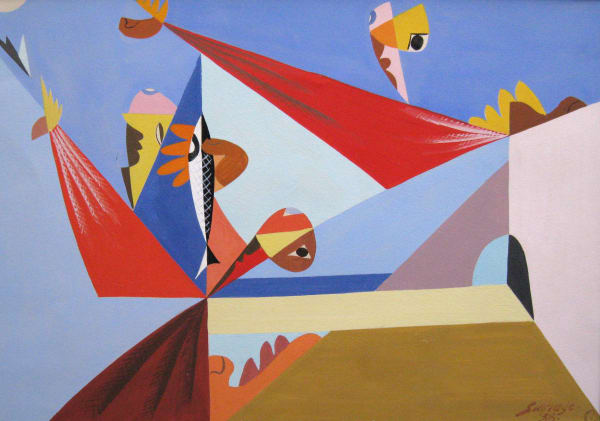
Focus on Abstraction
July 9, 2024Explore a curated selection of abstract paintings from our collection. Léopold Survage (1879-1968), pictured above, played a significant role in the development of abstract art...Read more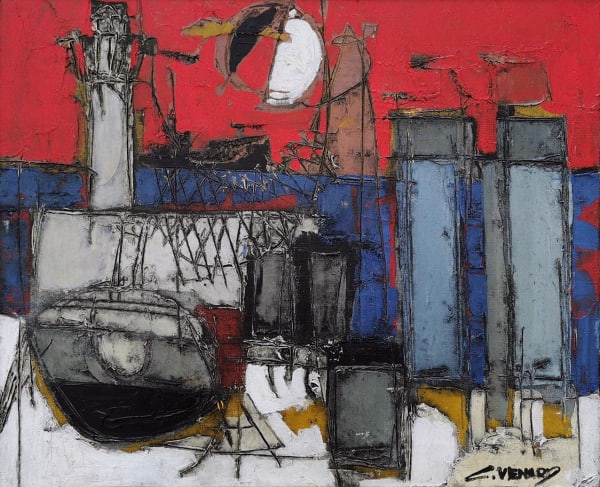
Fall for abstraction
October 17, 2023We welcome the autumn season with a special feature about abstract art, including artworks by French artists Claude Venard, Othello Radou, Alfred Vachon, and Frédéric...Read more
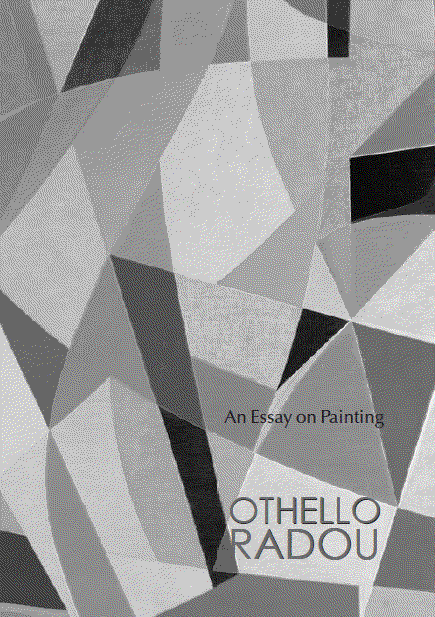
An Essay on Painting
Othello Radou Othello RadouRead more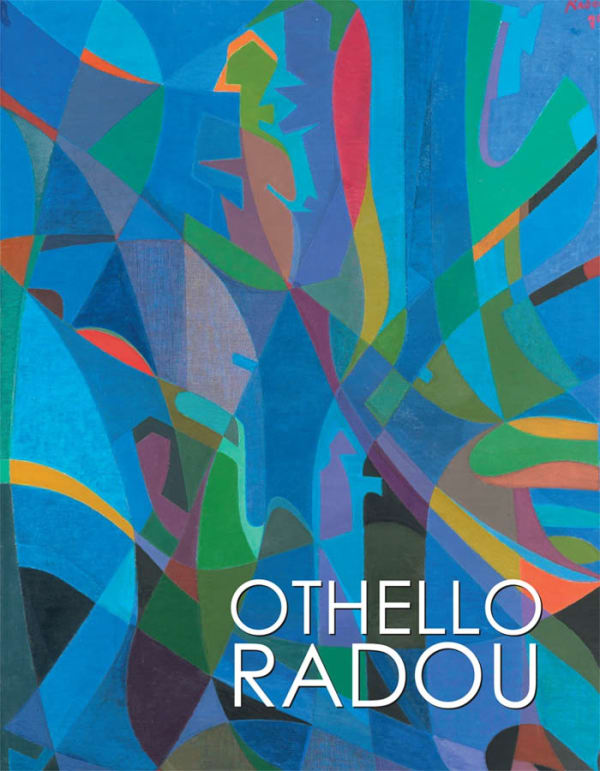
ATELIER RADOU
The artist’s collection Othello Radou, 2013Read more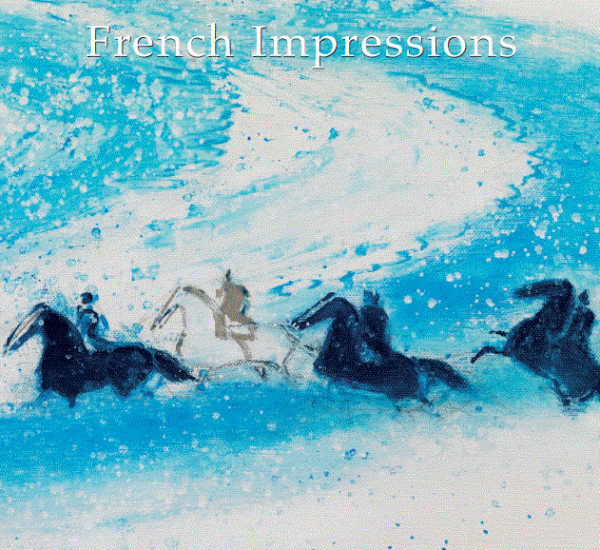
French Impressions
A Selection of 20th Century Paintings from France John Adams Fine Art, 2012Read more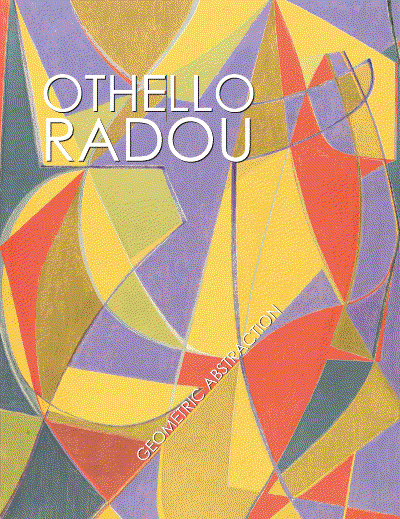
Geometric Abstraction
A major retrospective of paintings 1944 - 1957 Othello Radou, 2008Read more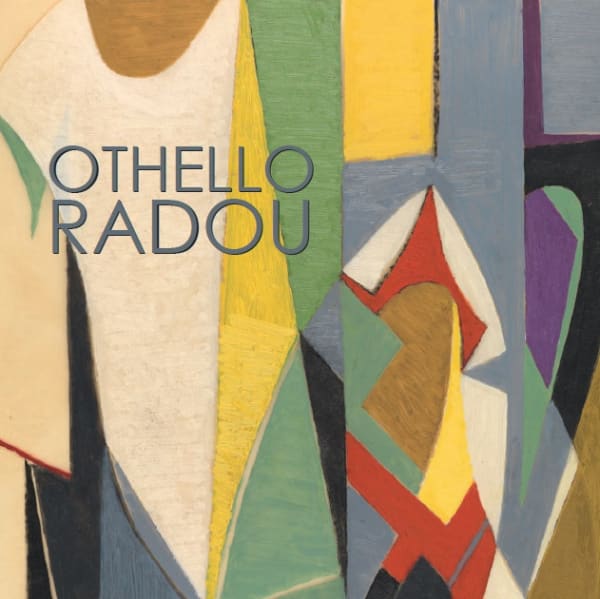
Harmonies
A selection of works on paper by Othello Radou Othello Radou, 2012Read more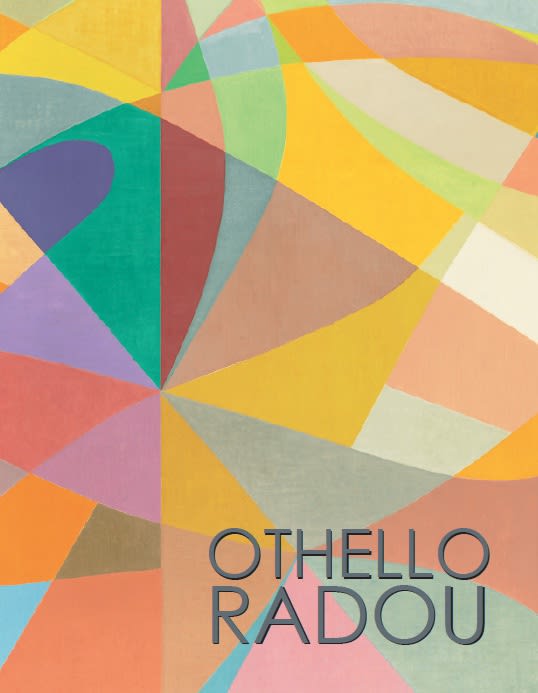
Themes and Melodies
The achievement of la grandeur. Paintings 1960 - 1980 Othello Radou, 2010Read more
Send me more information on Othello Radou
Join our mailing list
* denotes required fields
We will process the personal data you have supplied in accordance with our privacy policy (available on request). You can unsubscribe or change your preferences at any time by clicking the link in our emails.
